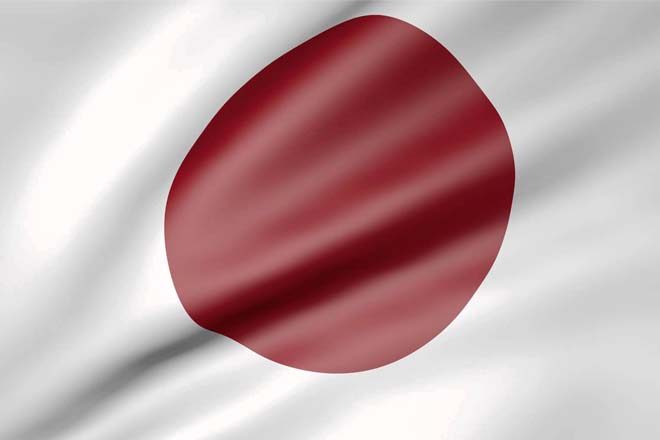In a momentous ceremony, the Climate Promise project, funded by the Japan Supplementary Budget (JSB) marked the ceremonial handing over of Renewable Energy Technologies to Farmer Organizations in the Northwestern Province of Sri Lanka yesterday. The initiative, named ‘Enhancing Food and Energy Security through the Promotion of Green Technologies & Renewable Energy for Wider Uptake among Vulnerable Smallholder Farmers in Sri Lanka,’ focuses on providing immediate crisis relief support to marginalized farmer demographics in the dry-zone farmland areas of the country.
The event was attended by, Hon. Lakshman Yapa Abeywardhana, Governor - North Western Province; Mr Ranjith Ariyarathne, Chief Secretary - North Western Province; His Excellency Mizukoshi Hideaki, Ambassador of Japan to Sri Lanka; and Ms Azusa Kubota, Resident Representative, UNDP in Sri Lanka.
Speaking at the event, Mr Ranjith Ariyarathne, Chief Secretary - North Western Province noted, “As an island with solid ecological balance and rich bio-diversity, Sri Lanka has much potential in green energy which comes with many competitive advantages, compared to traditional energy sources. Our appreciation goes out to the Government of Japan for its assistance through the JSB Climate Promise Project to fulfil the needs of the rural populations in the North Western Province, employing modern technology and social mobilization.”
The key highlights of the official handing-over event included the transfer of solar-powered cool rooms, milk can coolers, solar PV systems for milk chilling centres and farmer training centres, backpack sprayers, large & small-scale solar-powered water pumps, and moth-repellent kits to 49 farmer organizations benefitting around 20,000 farmers. These cutting-edge technologies aim to revolutionize farming practices, ensuring sustainability and promoting eco-friendly alternatives. The provision of solar-powered equipment is specifically designed to empower smallholder farmers, with a focus on women and youth, enabling them to secure a sustainable income.
Recognizing the Government of Japan's commitment to bolstering such initiatives in Sri Lanka, His Excellency Mizukoshi Hideaki, Ambassador of Japan to Sri Lanka, stated, “I believe that this support will help farmers deepen their understanding of the importance of sustainable agriculture in consideration of the global environment, and will also provide an opportunity for them to put green farming into practice, which is an important milestone in the promotion of renewable energy utilization in the agricultural sector in Sri Lanka.”
As part of the ceremony, a 5-ton solar-powered cool room was inaugurated, emphasizing the commitment to enhancing food and energy security in the region. The facility will serve as a vital resource for farmers to store and preserve their produce efficiently. The event also featured an insightful inspection of the cool room's operations, accompanied by interactive informal chats and discussions with the farmers.
Emphasizing the importance of incorporating Renewable Energy Technologies with sustainable income generation, Hon. Lakshman Yapa Abeywardhana, Governor - North Western Province noted, “It is an immense pleasure to witness that, the Government of Japan as a nation which has had a close relationship with Sri Lanka for centuries, has come forward to uplift the green energy sector and promote smart climate methodologies within the North Western Province. These initiatives should be treated as needs of the hour in the country’s sustainable development strategy. Having considered the success of the projects of this nature, I believe that they should be initialized and implemented in other provinces, as key elements of the country’s national agenda.”
Commenting on UNDP’s role, Ms Azusa Kubota, Resident Representative, UNDP in Sri Lanka highlighted, "In light of the challenges posed by escalating fuel costs and energy shortages, Sri Lanka's farming community, which consists of 27% of our labour force and impacts over 2.2 million individuals, faces considerable strain. However, through UNDP's Climate Promise project funded by Japan, we're pioneering solutions. By introducing modern, green technologies to smallholder farmers in the dry-zone farmlands, we're not merely offering assistance; we're providing them with a pathway to sustainable income generation—a vital step towards resilience and prosperity in the face of adversity."
The JSB Climate Promise project in Sri Lanka is a collaborative effort aimed at introducing modern, green technologies to address the immediate challenges faced by smallholder farmers. By fostering the adoption of Renewable Energy Technologies, the project seeks to create a positive impact on the agricultural landscape, ultimately contributing to the economic empowerment of vulnerable communities. The JSB Climate Promise project in Sri Lanka is a part of Japan’s $23.6 million contribution that aims to assist 16 countries across Asia-Pacific, Europe and Central Asia, Africa, and Arab State regions.

